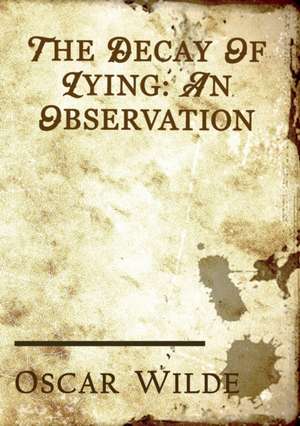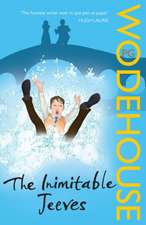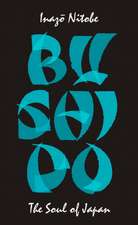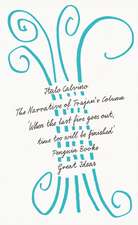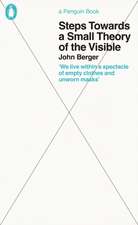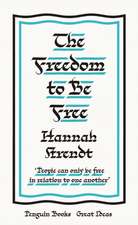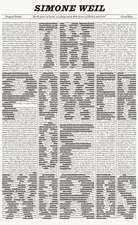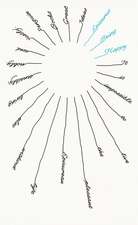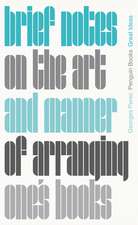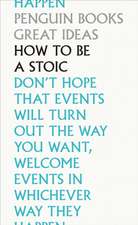The Decay of Lying
Autor Oscar Wildeen Limba Engleză Paperback – 27 noi 2020
- The Decay of Lying: An Observation By Oscar Wilde
- "The Decay of Lying - An Observation" is an essay by Oscar Wilde included in his collection of essays titled Intentions, published in 1891. This is a significantly revised version of the article that first appeared in the January 1889 issue of The Nineteenth Century.Wilde presents the essay in a Socratic dialogue between with Vivian and Cyril, two characters named after his own sons. Their conversation, though playful and whimsical, promotes Wilde's view of Romanticism over Realism. Vivian tells Cyril of an article he has been writing called "The Decay Of Lying: A Protest". According to Vivian, the decay of Lying "as an art, a science, and a social pleasure" is responsible for the decline of modern literature, which is excessively concerned with the representation of facts and social reality. He writes, "if something cannot be done to check, or at least to modify, our monstrous worship of facts, Art will become sterile and beauty will pass away from the land." Moreover, Vivian defends the idea that Life imitates Art far more than vice versa.
- Nature, he argues, is no less an imitation of Art than Life. Vivian also contends that Art is never representative of a time or place: rather, "the highest art rejects the burden of the human spirit ...] She develops purely on her own lines. She is not symbolic of any age." Vivian thus defends Aestheticism and the concept of "art for art's sake". At Cyril's behest, Vivian briefly summarizes the doctrines of the "new aesthetics" in the following terms: Art never expresses anything but itself.All bad art comes from returning to Life and Nature, and elevating them into ideals.Life imitates Art far more than Art imitates Life.
- It follows as a corollary that external Nature also imitates Art.Lying, the telling of beautiful untrue things, is the proper aim of Art.The essay ends with the two characters going outside, as Cyril asked Vivian to do at the beginning of the essay. Vivian finally complies, saying that twilight nature's "chief use" may be to "illustrate quotations from the poets."As Mich le Mendelssohn points out, "in an era when sociology was still in its infancy, psychology wasn't yet a discipline, and theories of performativity were still a long way off, Wilde's essay touched on a profound truth about human behaviour in social situations. The laws of etiquette governing polite society were, in fact, a mask. Tact was merely an elaborate art of impression management."
| Toate formatele și edițiile | Preț | Express |
|---|---|---|
| Paperback (5) | 40.99 lei 24-30 zile | +12.70 lei 4-10 zile |
| Penguin Books – 23 sep 2020 | 40.99 lei 24-30 zile | +12.70 lei 4-10 zile |
| Penguin Books – 31 mar 2010 | 51.60 lei 3-5 săpt. | +10.17 lei 4-10 zile |
| Alma Books COMMIS – 14 dec 2016 | 52.06 lei 3-5 săpt. | |
| CreateSpace Independent Publishing Platform – | 90.80 lei 3-5 săpt. | |
| Les prairies numériques – 27 noi 2020 | 103.16 lei 3-5 săpt. |
Preț: 103.16 lei
Nou
Puncte Express: 155
Preț estimativ în valută:
19.75€ • 21.46$ • 16.60£
19.75€ • 21.46$ • 16.60£
Carte disponibilă
Livrare economică 31 martie-14 aprilie
Preluare comenzi: 021 569.72.76
Specificații
ISBN-13: 9782382748213
ISBN-10: 2382748214
Pagini: 26
Dimensiuni: 148 x 210 x 2 mm
Greutate: 0.05 kg
Editura: Les prairies numériques
ISBN-10: 2382748214
Pagini: 26
Dimensiuni: 148 x 210 x 2 mm
Greutate: 0.05 kg
Editura: Les prairies numériques
Notă biografică
Oscar Fingal O'Flahertie Wills Wilde, also known as Oscar Wilde, was an Irish poet and playwright who lived from 16 October 1854 to 30 November 1900. He wrote in a variety of genres throughout the 1880s before becoming one of London's most well-known playwrights in the early 1890s. The Picture of Dorian Gray, his plays and epigrams, as well as the circumstances surrounding his meningitis-related early death at age 46 and criminal conviction for gross indecency for consensual homosexual activities in "one of the earliest celebrity trials," is what people will remember him for most. Anglo-Irish intellectuals in Dublin, Wilde's parents were. French and German were picked up by young Wilde with ease. While in college, Wilde read the Greats and distinguished himself as an outstanding student of classical literature, first at Trinity College Dublin and then at Oxford. He became involved with the aestheticism movement, which was being spearheaded by two of his professors, Walter Pater and John Ruskin. Wilde moved to London after finishing college and became a part of rich social and cultural circles. Queensberry intended to publicly humiliate Wilde by tossing a bouquet of decaying vegetables onto the stage, but Wilde was informed and had Queensberry turned away from the theater.
Descriere
Descriere de la o altă ediție sau format:
Calling on diverse examples from Ancient Greek sculpture to contemporary paintings, this title creates a witty, paradoxical world in which the only art worth loving is that built on complete untruths.
Calling on diverse examples from Ancient Greek sculpture to contemporary paintings, this title creates a witty, paradoxical world in which the only art worth loving is that built on complete untruths.
